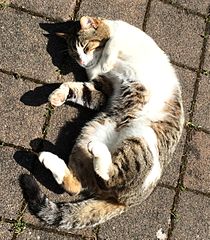coriaceous
A botanist versed in Latin would know at a glance that corium is leather, so describing a plant as having coriaceous leaves would mean they are Leathery.
quean
Back to the PIE *gwen- and the OE cwene, it just meant woman.
In about the 16th century it begins to splinter and become negative, used to describe female serfs, prostitutes, and hussies in general; used in combinations like cotquean, a hut-wife or laborer’s wife who allegedly had no sense of couth or manners. “Sense of ‘effeminate homosexual’ is recorded from 1935, especially in Australian slang”, and perhaps most common in modernity in the compound ‘cuckquean’, which is the female equivalent of a cuckold.
gallinule
A moorhen, marsh hen, or other denizen of the genus Gallinula.
Latin gallina is just ‘hen’.
timoneer
The context: “By now the quarterdeck had all its officers and young gentlemen, all its proper foremast hands, signalmen, messengers and timoneers, together with everyone else in the ship who had a right to walk upon it, …”
Apparently just ‘a helmsman’, probably meaning in this context anyone who can be trusted with the wheel of the ship under the supervision of the watch officer.
catholicon
All kinds of meanings for this one, my favorite of which is a synonym for the Greek-based panacea, or cure-all that serves as ‘a purger of all humours’.
aprication
The behavior of basking in the sun.
Interesting poetry behind it though. Apricus in Latin is ‘exposed’, as one would do to oneself with the sunshine, but the root aperire is simply ‘to open’. So to my mind, to apricate is to open yourself up to some other energy–solar, lunar–maybe even interpersonally.
I bask in thee like an Italian Tomcat.
